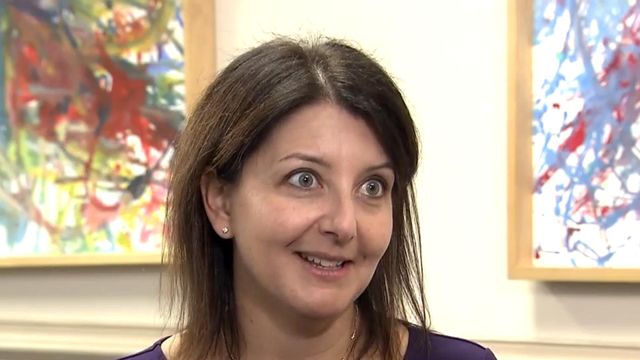Cohen 'grateful' for chance to help guide NC through pandemic
To many in North Carolina, Dr. Mandy Cohen, the secretary of the state Department of Health and Human Services, will forever be "the three W's lady." And that's just fine with her.
Posted — UpdatedCohen, who plans to step down from DHHS at the end of the month, became the public face of North Carolina's response during the ongoing coronavirus pandemic. During almost daily briefings with Gov. Roy Cooper early in the crisis and less frequently later on, she would often urge people to follow the "three W's" of wearing masks, washing hands and waiting apart from others to limit the spread of the virus.
A physician, she also would explain the science behind state decisions to close schools, shutter businesses and require people to wear masks, as well as the medical reasons for people to get tested for the virus as often as needed and to get vaccinated as early as possible.
"I never expected a global pandemic to be on my watch," Cohen told WRAL News in a one-on-one interview Wednesday. "I'm grateful that I was able to provide some comfort to folks when things were really uncertain and scary. I was going through that as a mom, a wife [and] a daughter as well – being scared. And so, I was thinking about that when I was trying to do my job."
The steps the state took, especially shutting down large swaths of the state's economy, from bars to gyms, for months, created a backlash in the state, with protest rallies targeting Cooper and Cohen for criticism. Later, mask mandates and vaccination drives led to similar resistance among some North Carolina communities.
"We knew there would be consequences to any of those decisions," Cohen said, calling the process "gut wrenching" and noting that she had many sleepless nights. "We tried to stay focused on the science and keeping people healthy."
Looking back, she said, she doesn't regret any of the decisions, noting that any missteps provided an opportunity to learn and use that knowledge to better inform decisions yet to come.
"It's really hard to Monday-morning quarterback a crisis," she said.
She also doesn't take the public criticism personally, saying the pandemic has upended – and too often ended – people's lives.
"We were asking folks to change the way they moved through the world, change the way their kids were learning, change the way they did their jobs," she said. "It's no surprise this was very challenging across the board."
Cohen said she's proud of how the state has addressed equity issues in ensuring that low-income communities and communities of color had access to virus tests and vaccines. But she regrets never being able to persuade state lawmakers to expand the Medicaid program and extend taxpayer-funded health insurance to thousands of North Carolina's working poor.
"We were a sicker state than I think we should have been, with more uninsured," she said, arguing that the lack of Medicaid expansion made the pandemic worse, especially in rural communities.
As North Carolina confronted a resurgence in the pandemic this summer as the virus' delta variant spread, Cohen said, she watched as her exhausted team stepped up to meet the crisis and became convinced they could carry on the fight against the virus without her.
And the fight is nowhere close to being over, especially as new variants emerge, she said.
"This virus is not done with us yet," she said. "I do think we are moving in the right direction, in terms of the fact we have the infrastructure we built to respond to this pandemic. We have the tools; we need to use them."
Related Topics
• Credits
Copyright 2024 by Capitol Broadcasting Company. All rights reserved. This material may not be published, broadcast, rewritten or redistributed.






